“I have no regrets”: former Education boss speaks out
After months of silence, former Education and Child Development chief Tony Harrison speaks to InDaily about the trials of reforming the controversial agency in the midst of a royal commission inquiry – and fresh challenges in his new role overhauling the state’s disability services regime.
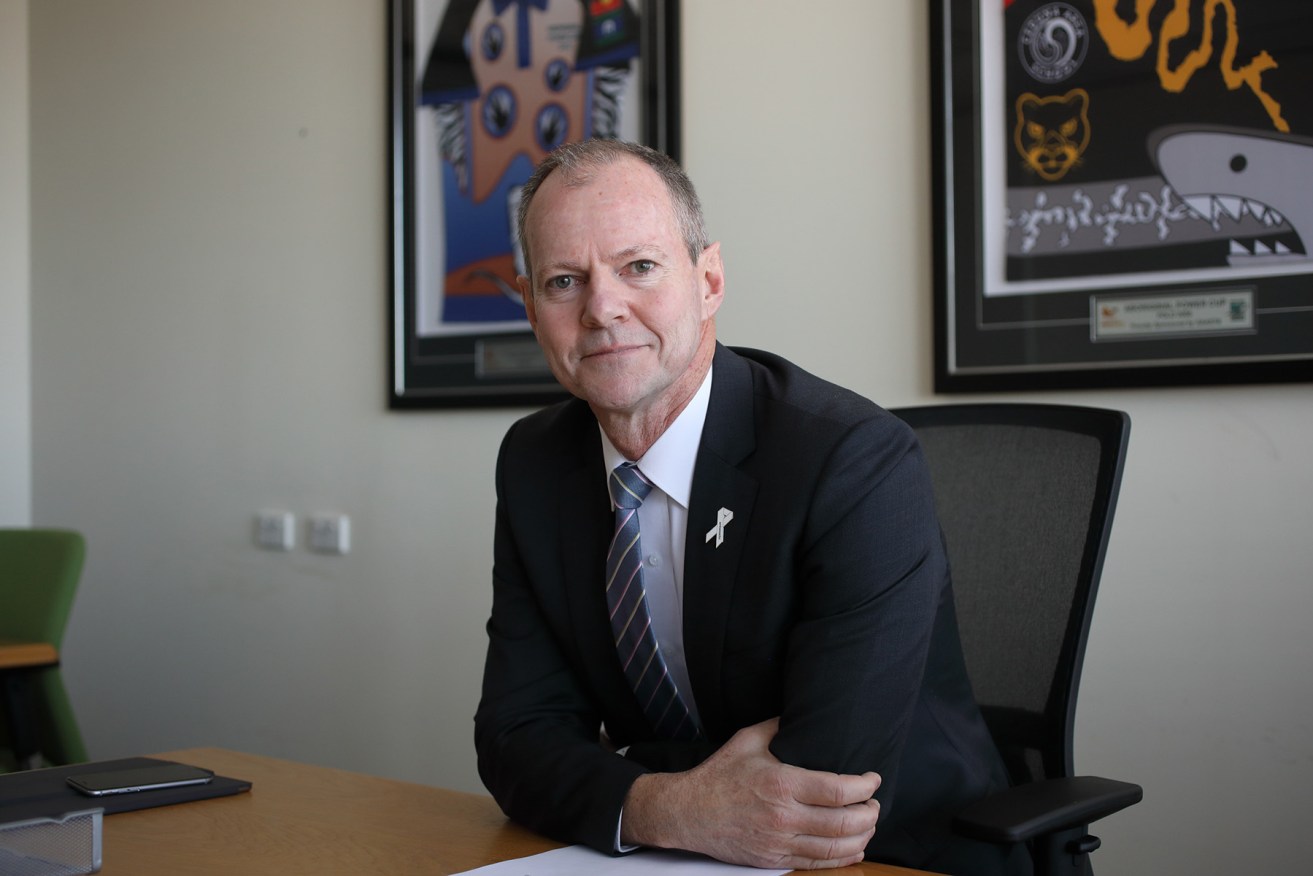
Communities and Social inclusion chief Tony Harrison. Photo: Tony Lewis / InDaily
From his riverside office window, Tony Harrison has a bird’s eye view of the building works on the new Convention Centre rooftop.
It’s a view to which, after three months, he has become well-accustomed, and he enthusiastically details the progress of the re-tiling when I arrive for our interview.
For now, the roof is a sheen of reflecting silver; within months, however, it will turn a colour the designers hope will encapsulate the essence of “the cliffs, rock formations and escarpments of the Flinders Ranges”.
In other words, brown.
In some ways, the view is arguably an apt metaphor for Harrison’s recent fortunes; his was a glittering rise but it took him on a journey through the mud of a litany of child protection failures, and that mud invariably sticks.
This is, one presumes, a smaller office than the one he left when he vacated the chair at the sprawling Department of Education and Child Development in late June.
But then, he now oversees a smaller department; significantly smaller. Before the Government, on the advice of Supreme Court Justice Margaret Nyland, finally decided to separate Child Protection from Education – moving Harrison aside in the process – he ran a bureaucracy with some 30,000 staff across the sector.
Now, at Communities and Social Inclusion, it is more like 5000.
But he insists he is relishing the challenges regardless, particularly the logistics of co-ordinating the state rollout of the National Disability Insurance Scheme, which he enthuses is “one of the most significant social reforms the country has seen”.
“I don’t have any regrets,” Harrison avows.
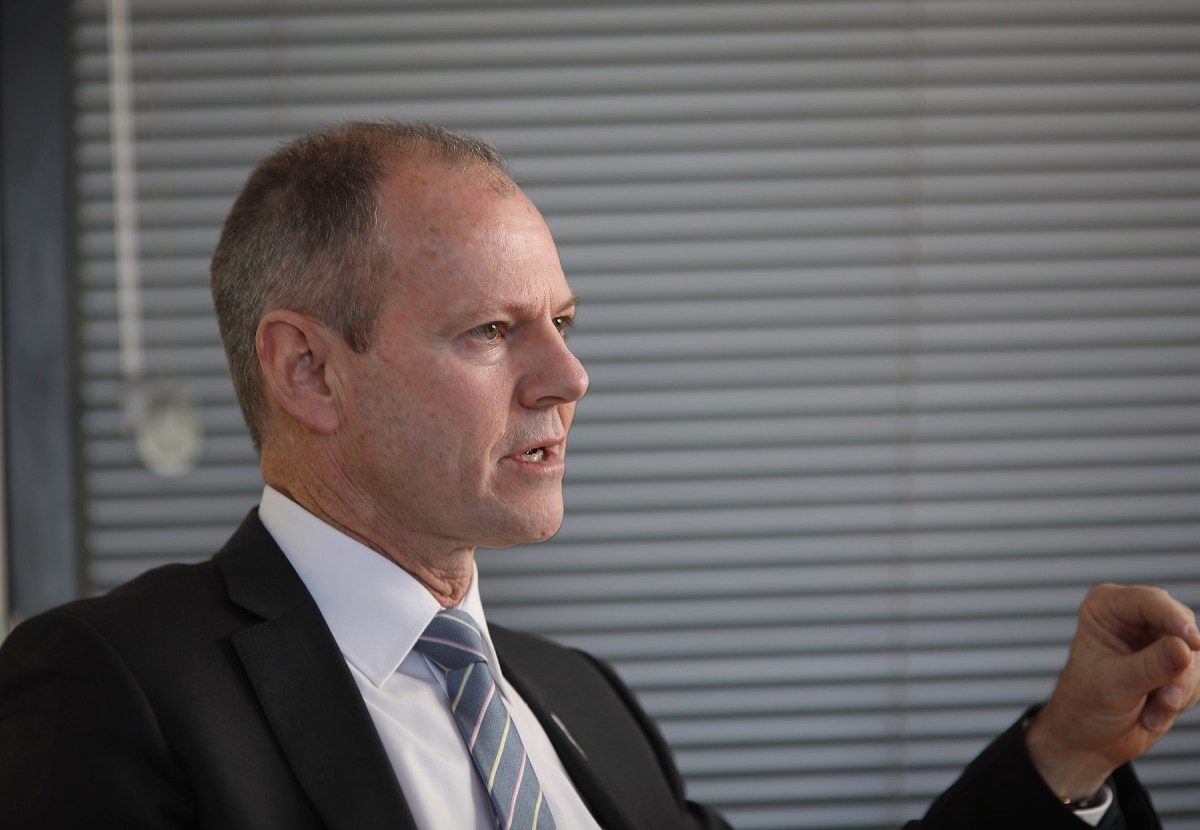
Photo: Tony Lewis / InDaily
It was clear from the moment Nyland handed down her interim recommendation to remove and remodel Families SA that the tone, at least, of her final report would not reflect well on those at the top.
“The removal of Families SA from the Department for Education and Child Development is a crucial step towards reforming the organisation’s current culture,” she noted at the time.
“It is clear from our investigation that Families SA needs to be completely overhauled… this is not just about a change of departmental location but rather a committed, serious and profound shift in leadership and culture.
“The new agency requires a refreshed leadership, including a chief executive with established professional credibility in the area, capable of leading by example.”
She spoke of a leadership team with “recognised credibility in child protection work, and who have the capacity to lead a major reform of organisational culture”.
Families SA, it seems, is an agency of perpetual reform.
Harrison remains stoically philosophical about his time overseeing the conjoined department.
“There’s no doubt chief executive positions in any organisation are generally pretty tough gigs, and they present challenges,” he notes.
“A wise mentor once said to me that when you’re a chief executive, all of the problems of organisations percolate to the top – and you’re the one that ultimately has to deal with them… and I think there’s some truth in that.”
He concedes “there’s no doubt you go to work and some days are tougher than others”. But equally, he insists, he takes great heart from reflecting on “your influence, I guess, and things you have responsibility for, improvements you put in place within organisations”.
“I’ve been extremely lucky and fortunate with the opportunities that have been provided to myself.”
Those opportunities have come think and fast in recent years, and invariably with controversy attached.
It was three years, “virtually to the day”, before the bombshell decision to split DECD that Harrison was first brought in to be the troubled agency’s salvation, following the sudden resignation of predecessor Keith Bartley.
Not that Harrison himself wasn’t a contentious appointment.
After being overlooked as Police Commissioner in favour of Gary Burns, he had been seconded by then-Police Minister Jennifer Rankine to a tailor-made role as director-general of Community Safety – a position the Liberal Opposition quickly vowed to abolish.
Within months, and amid the ongoing fallout of the events that prompted the Debelle Royal Commission – wherein a western suburbs school community was left in the dark about a serious child sexual assault by an after-hours carer – Rankine had replaced Grace Portolesi in education and child development and once again hand-picked Harrison to be her right-hand man.
There was disquiet about the appointment from some in the sector, who believed it signalled a shift towards damage control in child protection at the expense of the broader education portfolio.
“Typically there is a lot of misinformation,” Harrison says now.
“The suggestion was I was put into that position to fix up child protection but, if people recall correctly, in July 2013 it was a matter of a couple of weeks after the Debelle Royal Commission report, which was very much focussed on [the education sector] and the management of incidents.
“I can look back on those three years and generally be very satisfied to myself that there were the most significant reforms seen in education in those three years than had been seen in many years prior to that.”
He says “many seasoned principals” have told him the changes under his watch were “some of the most significant and positive they’d experienced in their careers”.
Nonetheless, his tenure will be inextricably linked with a turbulent era in child protection, most notably the fallout from the arrest of Shannon McCoole and the death of Chloe Valentine.
Harrison inherited an ongoing “redesign”, and also instituted further internal organisational reforms, while the Government established the Nyland Royal Commission and responded to a separate coronial inquiry into the death of Chloe Valentine.
He suggests now that the seemingly endless process of reform was, in some ways, counter-productive to instituting changes in the agency.
“There was no doubt that I and others spent an enormous amount of time in relation to improving child protection practices, and dealing at the same time with multiple inquiries and royal commissions – which were always going to bring, I guess, further levels of difficulty with advancing and making improvement and reform,” he reflects.
“Because you were always having to respond and address and make improvements, but not being seen to undermine a royal commission charged with the responsibility of looking at how the system was working and recommending improvements.”
When you’ve got something as comprehensive as a royal commission it does provide challenges
Harrison’s rhetoric is a curious mix of bureaucratese and the no-nonsense vernacular of his policing background. He speaks frankly, but chooses his words with care, as if years in the media spotlight have made him wary of those words being cast in the wrong light.
I ask if he is suggesting he was hamstrung by the ongoing royal commission inquiry and he responds: “Well, that might be your headline, the word ‘hamstrung’…”
Nonetheless, he concedes, “it was challenging”.
“There’s no doubt it’s a challenging period in any organisational reform, when you’ve got something as comprehensive as a royal commission – and a child protection royal commission – that you’re having to respond to and work with for a period of two years over my three year tenure in that position.
“It does provide challenges as to how you can improve and reform.”
Nonetheless, he is adamant there were improvements. He points to the fact that the number of children under the minister’s guardianship has grown, from 2700 when he arrived to 3300 at last report.
“That in itself, you could argue, is not a good statistic for children, but the fact is Families SA was responding to children in need, taking action and putting them in safer environments than we were finding them in – and the organisation was coping extraordinarily well.”
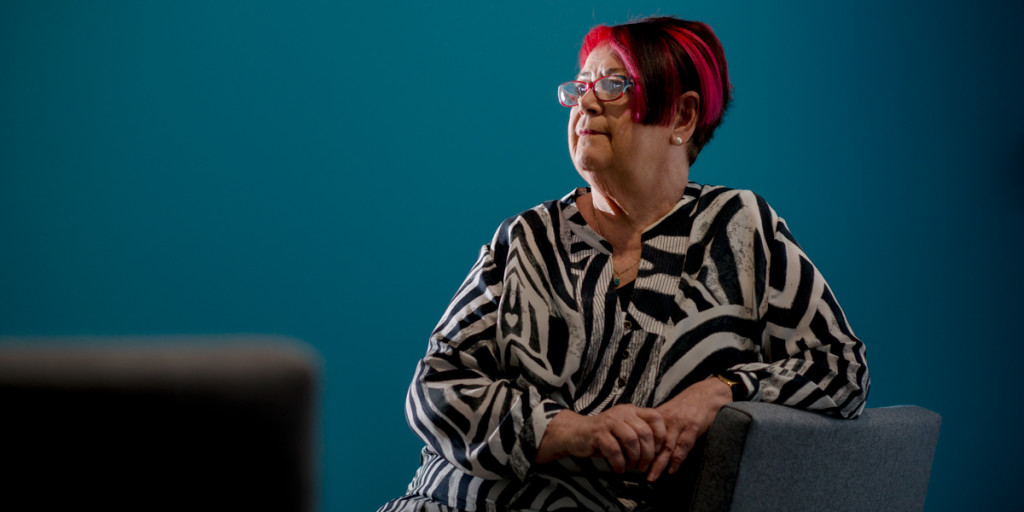
Child Protection Systems royal commissioner Margaret Nyland.
The Nyland report, though, did not paint a picture of an organisation coping well.
Rather, it detailed evidence of high staff turnover in certain areas, and underinvestment in professional development contributing to low staff morale.
A “redesign” process put in train shortly before Harrison’s appointment was reported by the agency in 2014 to entail “ongoing consultation with staff complemented by a strong and effective communication strategy”.
But Nyland found that “the evidence heard by the commission does not bear out this claim”.
“Rather, it is apparent that the processes adopted further alienated the workforce and exacerbated an already toxic state of affairs,” she wrote in her report.
“Staff continued to feel almost completely disengaged from important decision-making.”
Nyland noted it was not within her terms of reference “to apportion blame or responsibility for the various failures” of the redesign process.
“It is sufficient to observe that there exists a widespread perception that the redesign process further disengaged front-line child protection staff and devalued the contribution of professional staff in the agency,” she concluded.
“Overwhelmingly the message was that workers felt shut out, silenced and disrespected. The process was the source of a great deal of ill feeling across the agency.”
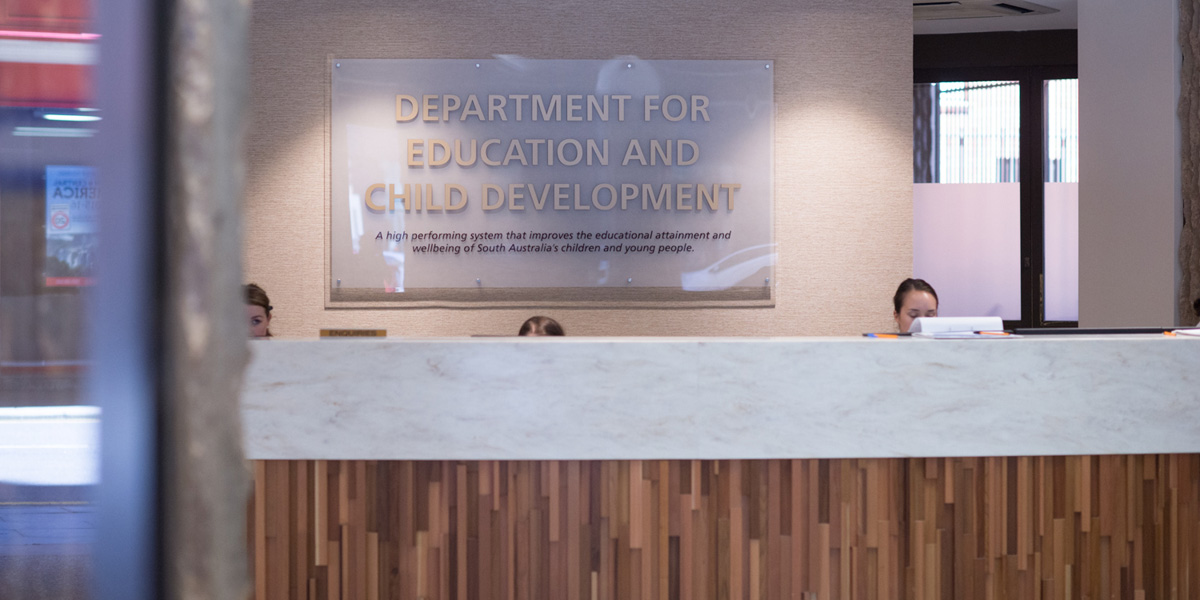
The Department for Education and Child Development will be separated into two entities. Photo: Nat Rogers / InDaily
Harrison did not set the redesign in train. But he stands by what he calls “significant organisational reform” under his watch, both in education and child protection.
Combined with the fruits of the royal commission, he says, “there was a very, very deliberate, well-resourced reform program impacting on 30,000 employees, including a lot of educators and child protection people”.
“Certainly my hope would be that the new [Education] chief executive, [former Attorney-General’s Department boss] Rick Persse – no doubt he would want to impose his own flavour – but it would be good to see the organisation continue to reform… to make sure South Australian young people and children are well-equipped with the skills, knowledge and aptitude they’re going to require for future jobs”.
“And,” he adds, “a lot of these jobs are jobs we probably don’t understand that are going to be required in the future.”
The impact for the state is potentially more than 6000 new jobs to be created to serve new market needs
Harrison says there’s an opportunity in his new role to “complement some of those changes” in education.
“This is a diverse department,” Harrison says of his new empire.
It currently provides disability care services to about 40 per cent of those who require it in SA, as well as maintaining sole responsibility for youth justice and much of the administration of cost of living concession payments.
Aptly, it is the agency charged with clearing the backlog of screening clearances – an issue that became problematic after the Debelle inquiry urged broader checks for those working with children.
“I believe at the moment we have a well-operating screening unit,” he insists, producing a sheet of paper that details the stats to back his claim.
In the last financial year, he says, 97.6 per cent of clearance applications were addressed within the 30-business-day requirement, with only those with “further complexities” requiring longer.
With around 13,000 applications so far since July, “we’re operating at 99.8 per cent within 30 business days”, with only 32 cases assessed outside that timeframe.
Harrison credits a more streamlined application system.
“Importantly you can now make applications online [which] certainly provides greater certainty that people will have their application processed within the 30-day timeframe,” he says.
But there’s a catch.
And, once again, it’s the Nyland recommendations that are making Harrison’s job tougher.
“There’s no doubt the Nyland recommendations and [those of] the nation royal commission [into institutional child abuse] are going to have further considerations for us – and in particular the Government’s policy position of moving to continuous monitoring,” he explains.
Previously, those with clearances have been subject to three-year checks.
“Continuous monitoring is going to bring a completely new dimension to a more robust checking system for working with children,” says Harrison.
“It’s going to significantly enhance the robustness of the clearing process, but it is going to mean that we’re going to have to further adapt our internal screening operations.”
I ask him to reflect on the Nyland recommendations: what would they cost to implement, from what he knows of the constrained resources in Families SA?
This time, he answers like a bureaucrat.
“You would be aware that the Government has announced it will take some months to consider a comprehensive response… far be it from me to make comment about what the outcome of that will be,” he muses.
Then, as if to explain his diplomatic reply: “I’m not trying to avoid the question here, but the politics – I do want to avoid.”
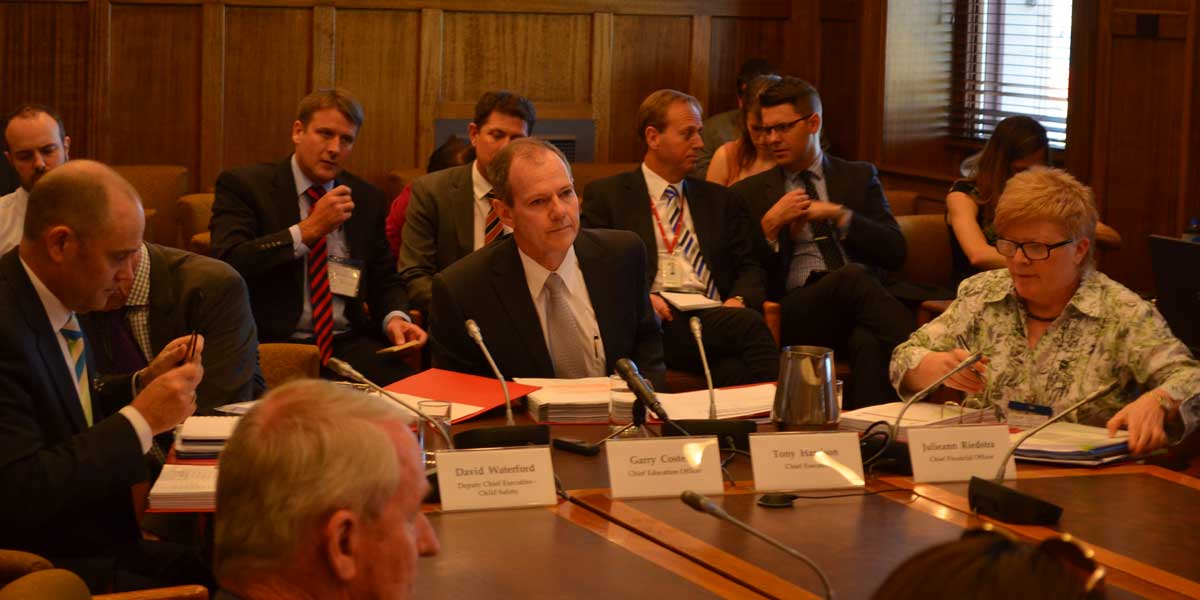
Harrison giving evidence before parliament’s Budget and Finance Committee.
The politics, of course, is hard to avoid.
In recent days, Harrison’s focus has been on the aftermath of the flooding rains that have lashed parts of the city and state; Communities and Social Inclusion also oversees “the whole-of-state response to emergency management recovery”.
It is, then, something of an administrative grab-bag.
But one to which Harrison has responded with his traditional reformist zeal.
“I have somewhat quickly, I guess, established a change in executive structure by [creating] a deputy chief executive position, and also advertising for an executive director for people and culture – human resources – which the department hasn’t previously had,” he explains.
He has also created a new incident management division, similar to the one he established in DECD after the Debelle Royal Commission, with a new director of communications and engagement.
It’s a role, he insists, that “despite the negative connotations you tend to get” will become increasingly important as the NDIS rollout progresses.
“With the size and the magnitude and scale of disability reform, communications with people with disabilities, NGO providers and the community more broadly is going to be very, very comprehensive for many years to come, to make sure some of the most vulnerable people in our community are streamlined into the NDIS… and at all times we’re focussed on quality of care and service for those people,” he says.
“An elevated approach to communications and engagement is so important; the position will no doubt have an extensive focus on the disability support program, and that’s certainly where I have and will spend a lot of my time in relation to the state’s preparedness.”
Harrison clearly considers a successful local rollout of the scheme as his primary mission in his new role.
Despite the timing and circumstances of his shift, he maintains “part of the consideration of coming here” was having had “quite an extensive involvement” with disability services organisation Minda Inc, where he served as president for six years from 2010.
“I’d gained quite an in-depth understanding of what the NDIS was all about and the need for NGOs and the state to prepare,” he says.
It is, he argues, “one of the most significant social reforms the country has seen, when you think it impacts on 450,000 people with disabilities”.
“We currently provide services to 20,000 people with disability, and historically services have been provided with somewhat of a ‘one size fits all’ approach, with the institutional service delivery model,” he says.
Within 18 months, however, those 20,000 and then some will be transitioned onto the NDIS, with $700 million allocated nationally for disability housing.
“It’s a massive reform program in very, very tight timeframe… a massive opportunity to address inequity issues and capacity issues, and ensure people with disabilities receive requisite levels of care and support,” says Harrison.
But he also sees it as a key plank in the state’s economic transformation.
“The impact for the state is potentially more than 6000 new jobs to be created to serve the new market needs, because of additional funds coming in to the sector,” he argues.
“It’s an opportunity to build market capacity: we’re talking the biggest single employment growth area that’s available to SA in coming years.”
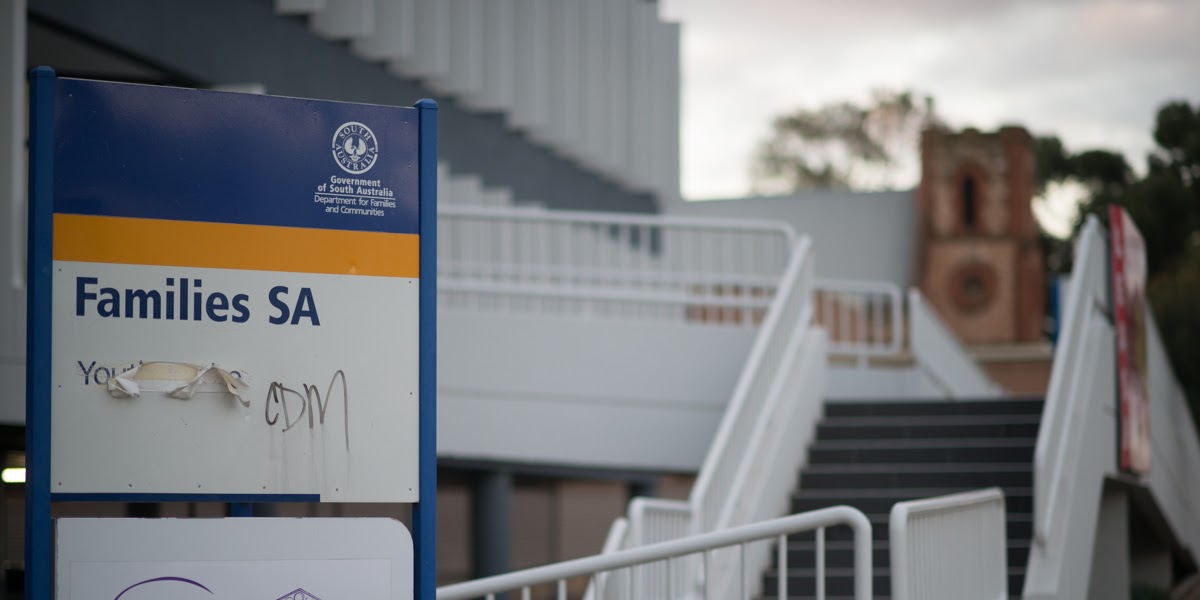
Families SA will soon be rebadged as a standalone entity. Photo: Nat Rogers / InDaily
Harrison is one for the big picture, but he is also appreciates the process by which it is painted. He delights in process, whether it be overseeing the NDIS rollout or studying the tiling on the rooftop of the Convention Centre below his office window.
It’s been a turbulent three years, but he maintains there is no backward glance, nor a moment’s despondency that he ever eschewed his status as a rising star in SAPOL – a move many saw as an impulsive reaction to a one-time setback.
“None at all; the contrary actually,” he insists.
“It’s often considered that policing isn’t part of the public sector, but policing is very much part of the public sector.
“I’ve been so fortunate over 30-plus years that I’ve had opportunities that I could probably never have imagined, from a senior executive in policing to emergency management to education and child protection to disability housing.”
Harrison, it seems, is looking forwards. He has a new empire to build.




